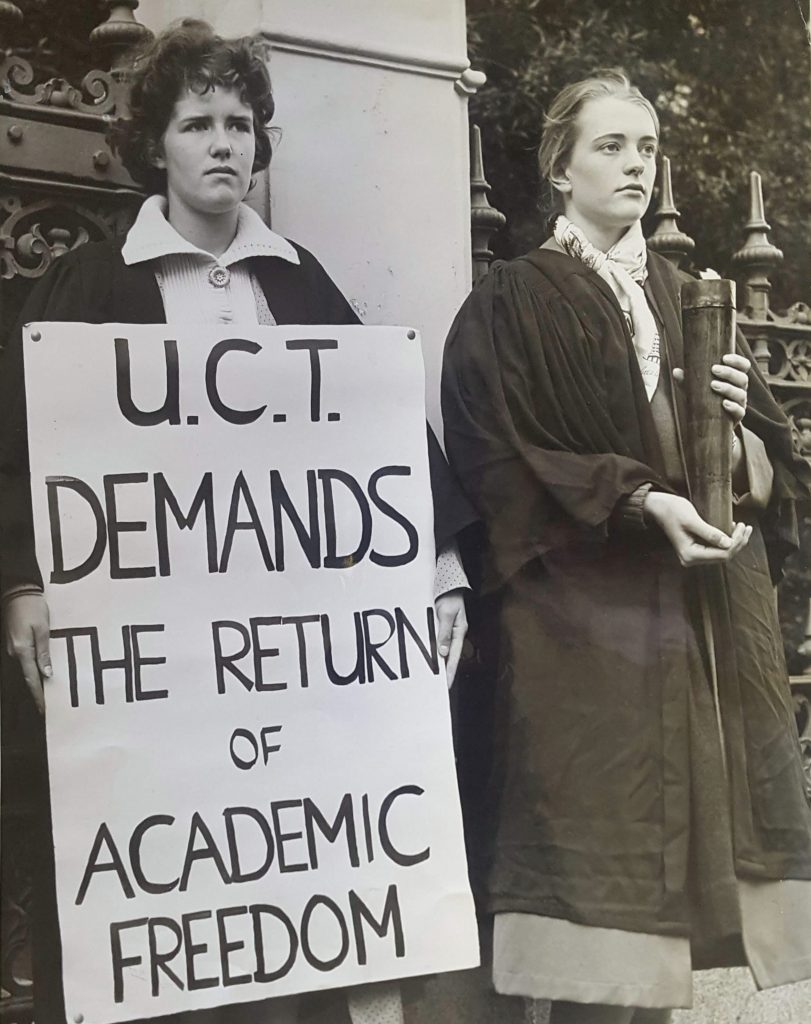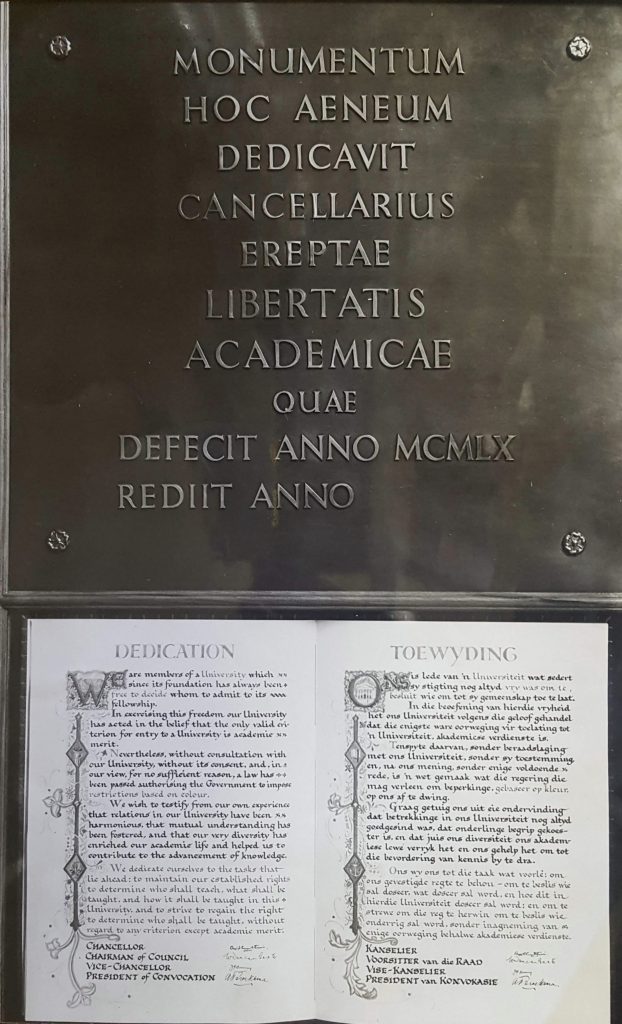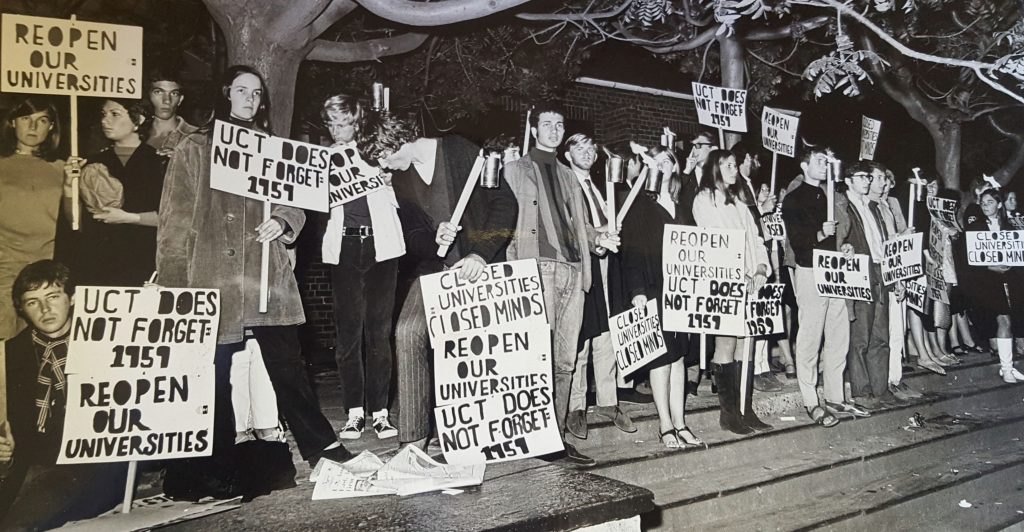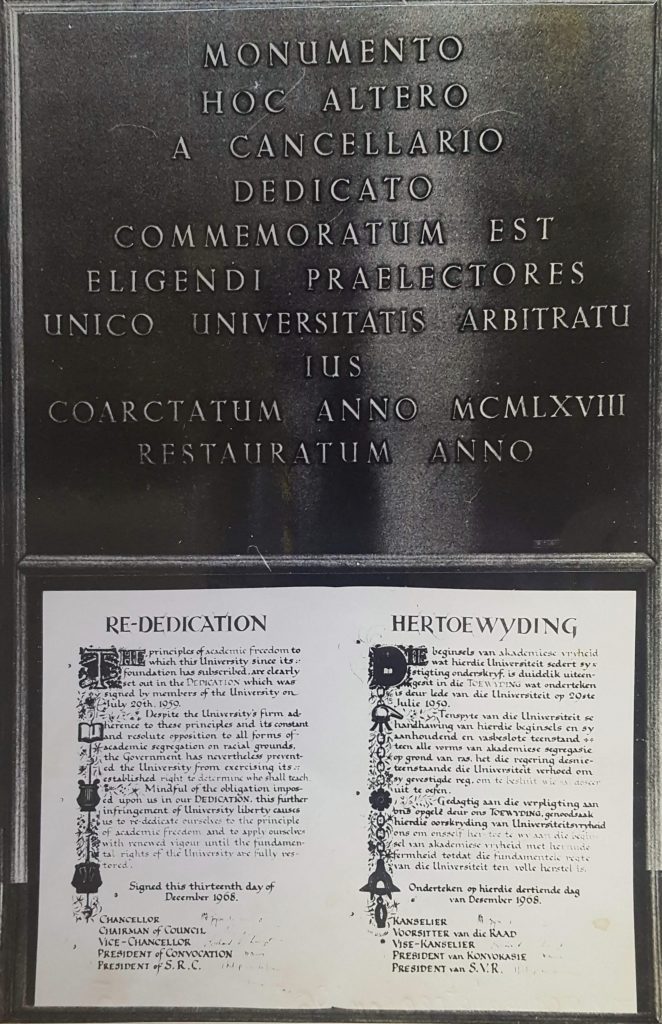by Isaac Ntabankulu
When we celebrate Freedom Day on 27 April we must not forget those who challenged the unjust system of the past and fought tirelessly for education to be accessible to all, not the select few. Contrary to expectations, the Nationalist Party won the whites-only 1948 general election and extended the racial segregation that was already widely practised in South Africa. This form of institutionalised racial segregation was called apartheid or ‘apartness’. Strategists in the Nationalist Party invented apartheid to cement their control over the economic and social system. The implementation of apartheid was made possible through a raft of laws, including the Population Registration Act of 1950 which classified all South Africans as either African, Coloured, White, or Indian.

This racial segregation was extended to all aspects of life and all South African institutions, including the institutions of higher education. The Extension of University Education Act removed from universities the freedom to decide whom they would admit as students. African, Coloured, and Indian students would have to receive special ministerial permission before they could attend a ‘white university’. In 1953, Dr Malan, as Chancellor of the University of Stellenbosch, announced the government’s plans to introduce academic apartheid at the universities of Cape Town and the Witwatersrand. These unjust apartheid laws were challenged by students and academic staff, and the struggle for academic freedom began. Their view was that academic freedom implies that teachers should be free to teach the truth as they see it and that they should not have to bow to sectional, political, religious, or ideological dogmas or beliefs. When commemorating those who sacrificed their lives and fought for academic freedom, the Special Collections Department will mount on display cabinets of published and unpublished documents that have information on academic freedom.

Indlela ende eya kwinkululeko yokufundisa ngaphandle kokulawulwa nguRhulumente
ngu Isaac Ntabankulu
Nanjengoko isizwe sizakube sibhiyozela uMhla weNkulukelo, ozakube ungomhla wama27 kwinyanga kaTshazimpunzi, kufuneka sibakhumbule abo bazijula ijacu bachasa imithetho yocalu-calulo neyayithintela abantu abantsundu bangayifumani imfundo ekumgangatho ophezulu neyayixhanyulwa ligcuntswana lwabamhlophe.

Ngokuchasene noko kwakulindelwe ngabantu, iNational Party yaluphumelela ukhetho lukazwelonke olwalungenelwe ngabamhlophe bodwa ngomnyaka we1948. Nangona yayihleli ikhona imithetho yocalu-calulo eMzantsi Afrika, yayenza yambi ngakhulu imeko yomntu omnyama iNational Party ngethuba kwaxhuzula yona imikhalal yolawulo. Olu calu-calu nolwalenziwe umthetho lwalubizwa i-apateyiti okanye iyantlukwano. Iziphathamandla zeNational Party zeza neli qhinga lokulawula ngokucalula abantu ukuze zongamele uqoqosho nentlalo yabantu. Kwamiselwa umthetho owawugunyazisa abantu bohlulwe ngokuthi kubekho um-Afrika, oweBala, uMlungu, okanye umNdiya. Oku kwahlulwa kwabantu kwanatyiselwa kuzo zonke iindawo ekuphila kuzo abantu eMzantsi Afrika, kuquka nemfundo ephakamileyo. Umthetho owawubizwa iSihlomelo kwiMfundo ePhakamileyo wabangela ucalulo kwindlela ekwamkelwa ngayo abafundi kumaziko aphakamileyo. Loo nto yabangela ukuba abafundi abangama-Afrika, nabantu beBala kunye namaNdiya bafune imvume kwabasemagunyeni phambi kokuba bomkelwe kwiiyunivesiti zabamhlophe. Ngomnyaka we1953, uGqirha Malan, owayeyingqonyela kwiYunivesiti yaseStellenbosch wabhengeza amanyathelo awayethathwa nguRhulumente, angokufakwa kwemithetho yocalu-calulo kwiyunivesiti yaseKapa neyaseWitwatersrand. Loo mithetho yocalu-calulo yabangela uqhankqalazo olwasenziwa ngabafundi nabahlohli kumaziko aphamileyo. La matsha-ntliziyo ayekholelwa kwelokuba inkululeko kwimfundo ithetha ukuba abahlohli baseyunivesiti kufuneka bafundise ngokukhululekiyo, bayidandalazise inyani ngobunjalo bayo, bangathobeli abo bohlula abantu ngokwezopolitiko, inkolo, nabanyanzelisa ukusetyenziswa koluvo lwabo okanye iinkolelo. ISebe leThala leNcwadi iSpecial Collections lizakhumbula loo magorha azincamayo anikezela ngobom bawo alwela imfundo ekhululekileyo ngokuthi libenomboniso lisebenzise iincwadi namaxwebhu angapapashwanga abalisa ngale mbali.

